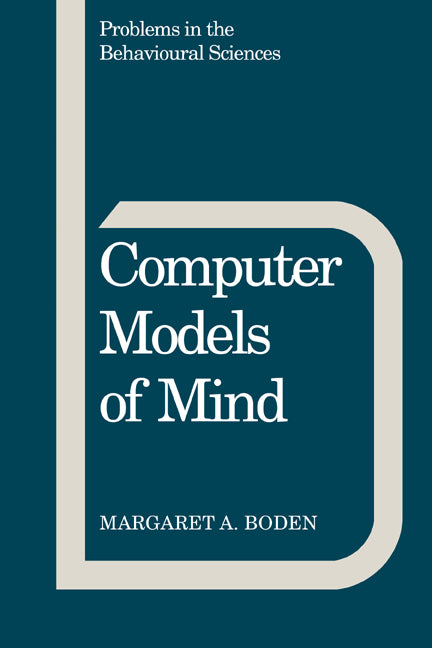Freshly Printed - allow 8 days lead
Couldn't load pickup availability
Computer Models of Mind
Computational approaches in theoretical psychology
This book shows how computer models are used to study many psychological phenomena - including vision, language, reasoning, and learning.
Margaret A. Boden (Author)
9780521270335, Cambridge University Press
Paperback, published 29 April 1988
304 pages
22.9 x 15.3 x 1.7 cm, 0.425 kg
"broad and well researched...an eloquent discussion..." International Weekly Journal of Science
What is the mind? How does it work? How does it influence behavior? Some psychologists hope to answer such questions in terms of concepts drawn from computer science and artificial intelligence. They test their theories by modeling mental processes in computers. This book shows how computer models are used to study many psychological phenomena - including vision, language, reasoning, and learning. It also shows that computer modeling involves differing theoretical approaches. Computational psychologists disagree about some basic questions. For instance, should the mind be modeled by digital computers, or by parallel-processing systems more like brains? Do computer programs consist of meaningless patterns, or do they embody (and explain) genuine meaning?
Preface
Acknowledgments
1. Introduction
2. Patterns, polyhedra, imagery
3. Connectionist models of vision
4. Parsing natural language
5. Meaning and messages
6. Reasoning and rationality
7. Learning and development
8. Is computational psychology possible? 9. Conclusion
References
Index of names
Index of subjects.
Subject Areas: Neurosciences [PSAN], Physiological & neuro-psychology, biopsychology [JMM], Psychological theory & schools of thought [JMA]


